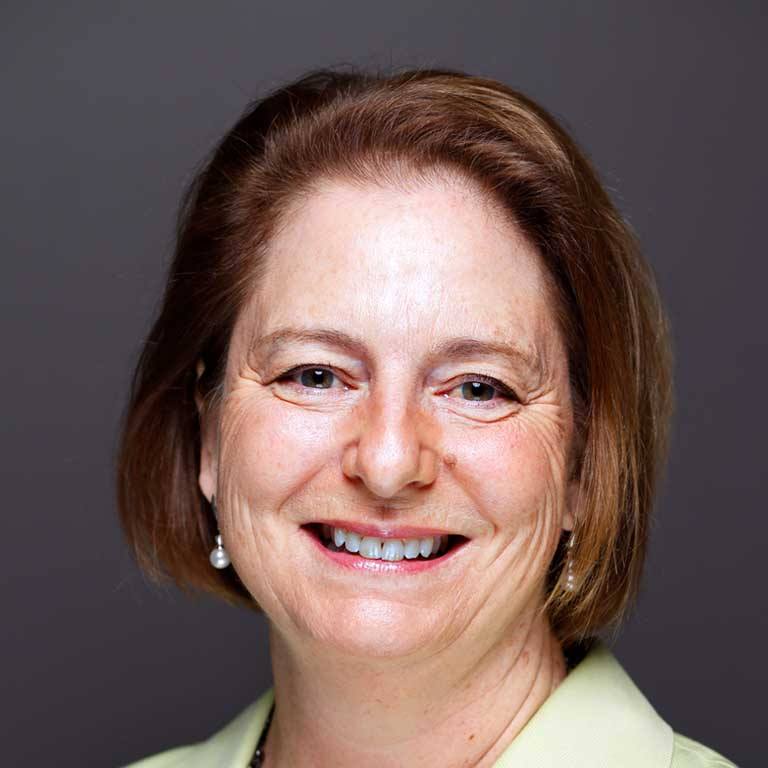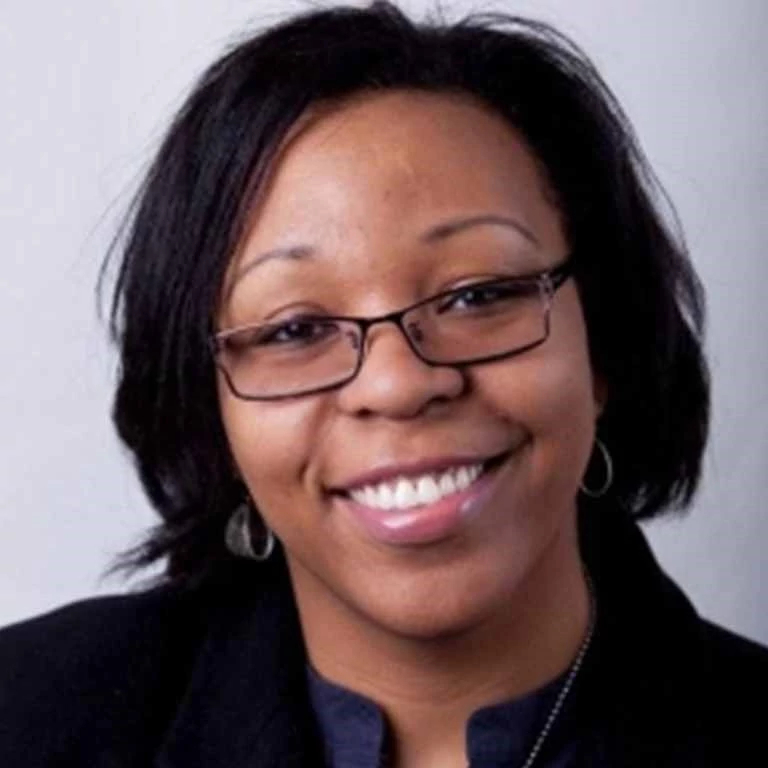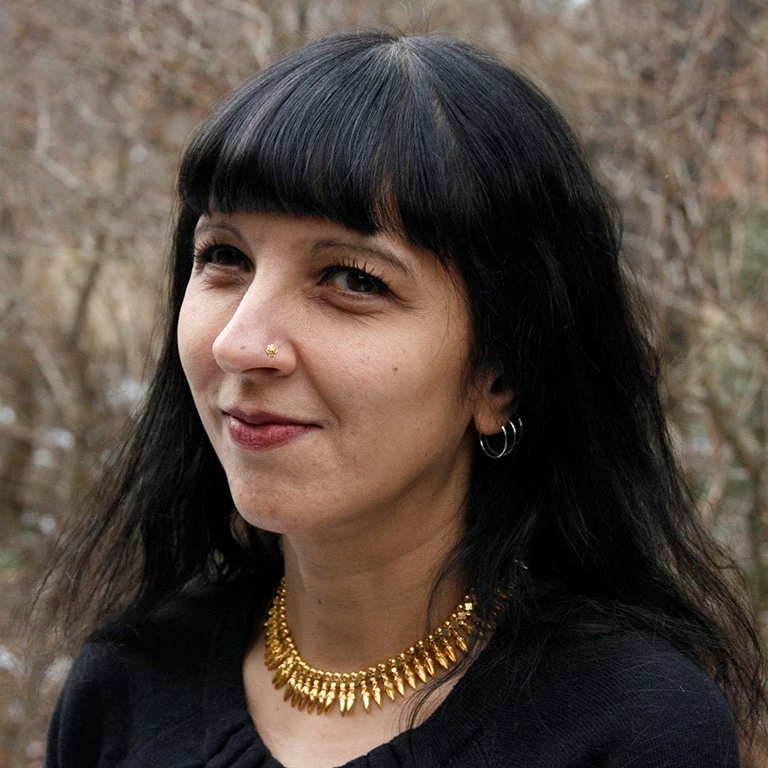
BLOOMINGTON – Pamela Braboy Jackson, professor in the Department of Sociology in the College of Arts and Sciences, will receive the 2021 Tracy M. Sonneborn Award, which honors an IU faculty member for outstanding research/creative activity and teaching. She has also been named a Provost Professor.
Four IU Bloomington faculty members have also been named Provost Professors:
- Katherine “Kay” Connelly in the Luddy School of Informatics, Computing and Engineering.
- Peter Finn in the College of Arts and Sciences’ Department of Psychological and Brain Sciences.
- Diane Reilly in the College of Arts and Sciences’ Department of Art History.
- Pravina Shukla in the College of Arts and Sciences’ Department of Folklore and Ethnomusicology.

“Professors Connelly, Finn, Jackson, Reilly, and Shukla have brought great honor and prestige to Indiana University through their exemplary research and have enriched the lives of countless students through their devotion to teaching and mentorship,” Vice Provost for Faculty and Academic Affairs Eliza Pavalko said. “It is truly a pleasure to see them receive the recognition that is so well deserved.”
Jackson will present the annual Sonneborn Lecture at a time and location to be announced later. Provost Professors also will be honored at a reception during the coming academic year.
The Sonneborn award and lecture are named for the late IU biologist Tracy M. Sonneborn, a renowned geneticist who was also highly regarded for his teaching. The Provost Professor position, originally called Chancellor’s Professor, was created in 1995, to honor those who have achieved local, national, and international distinction in both teaching and research/creative activity.
Pamela Braboy Jackson
Jackson received her doctorate from IU in 1993 and joined the Department of Sociology faculty in the College of Arts and Sciences in 2000 after serving on the faculty at Duke University. She has served as core faculty to the Indiana Consortium for Mental Health Survey Research, as well as affiliate faculty to the African American and African Diaspora Studies Department.
From 2012 to 2014, she served as founding and inaugural director of the Center for Research on Race and Ethnicity in Society. She continues as affiliate faculty for the center, is director of undergraduate studies, faculty advisor to the WOKE undergraduate sociology club and a faculty representative to AKD, the IU Honor Society.
Jackson is a highly respected and influential scholar specializing in the areas of mental health, medical sociology, sociological social psychology, family and racial relations. She is internationally known for her groundbreaking scholarship on the relationship between social structure and human lives and, more specifically, on persistent racial inequality of health outcomes and the complexity of familial relations. Jackson is committed to challenging scholars to go beyond the experience of the white middle class, explore the lived experiences and to do so through an international lens. She currently serves as commissioner for the Bloomington Human Rights Commission.
She is dedicated to her teaching and mentoring of students. She works with undergraduates in her classes, as well as those in the honors program, IU’s Groups Program, the 21st Century Scholars Program (first-generation and underrepresented students) and WOKE. She has had an immeasurable impact upon her students and built a student community that has remained steadfast throughout the COVID-19 pandemic.
Her students insist that she has a unique ability to empower them to reach their fullest potential. She received the Faculty Mentoring Award in 2008 and the Student Choice Award for her mentorship in 2013. She served as faculty advisor to the American Sociological Association Minority Fellowship Program, as well as in other American Sociological Association roles.
Her graduate students have gone on to serve as faculty and post-doctoral fellows at other prominent institutions, including The Brookings Institution, the National Science Foundation and the National Institutes of Health. Her students credit her for her all-encompassing mentorship style, and for their own success at navigating being the first doctoral students in their families, persons of color in Bloomington and matriculating the Department of Sociology at IU.
Katherine “Kay” Connelly
Connelly serves as associate dean for research and professor of informatics in the Luddy School of Informatics, Computing and Engineering. She received her doctorate in computer science in 2003 from the University of Illinois, Champaign-Urbana.
Her research lies at the critical intersection of computing and health care. She is especially interested in issues that influence user acceptance of health technologies, such as privacy, integration into one’s lifestyle, convenience and utility.
She approaches problems with the intent of improving patient outcomes. Her work with the aging population is considered visionary and cutting-edge. The range of problems she has explored include dietary management, rare disease patient communication challenges, privacy and patient well-being.
Connelly’s teaching is consistently rigorous and challenging; she is supportive of student learning and dedicated to inclusion of women and minorities. In the midst of the COVID-19 pandemic challenges, Connelly has made further advancements in her approach to teaching and learning via the online environment. She has rethought strategies on improving learning for students, and has spent significant time and effort creating online materials to mitigate the pandemic challenges and foster student learning in this environment.
Connelly excels in mentoring both undergraduate and graduate students. She is committed to including undergraduate students in her lab and providing opportunities for their first mentored research experiences. She advises doctoral students on a consistent basis and is committed to teaching and mentoring the next generation of scholars in this field.
She has embraced additional leadership duties in her role as associate dean for the Luddy School. In this role, she has sought out greater opportunities for colleagues, particularly in artificial intelligence. She was chosen as a fellow of the Big Ten Academic Alliance Academic Leadership Program. From 2010 to 2016, she served as co-director for the Center for Law, Ethics and Applied Research in Health Information. Connelly is a recipient of the Outstanding Junior Faculty Award and the Trustees Teaching Award, among others.
Peter Finn
Finn is professor in the Department of Psychological and Brain Sciences in the College of Arts and Sciences. He also serves as the principal investigator of the Biobehavioral Alcohol Research Laboratory. His research topics include cognitive and motivational processes in substance abuse; working memory and self-regulation; and disinhibitory processes in personality.
Finn is an internationally recognized expert on substance use disorders and the cognitive and motivational processes associated with poor self-regulation and risky/impulsive decision-making. His research has direct implications for the prevention and treatment of substance use disorders. In recent years, Finn’s research has expanded to develop and assess the effectiveness of specific interventions designed to improve self-regulation and decision-making in both young adults with an alcohol use disorder and adolescents.
Finn’s research has real-world applications to benefit the human condition. He recently developed a new intervention designed to improve decision-making and reduce binge drinking in young adults. He is collaborating with Dr. Leslie Hulvershorn in the IU School of Medicine to adapt this for use with adolescents.
In addition to his teaching and inspiring students at both the undergraduate and graduate levels, Finn also mentors early-career faculty at Bloomington and at the IU School of Medicine. He has assisted other faculty and graduate students in their endeavors to develop research programs in addictions.
Finn received the Trustees Award for Outstanding Teaching three times. He was awarded the Outstanding Mentor Award in 2014 by the American Academy of Child and Adolescent Psychiatry for his mentorship of Hulvershorn. Finn is a fellow of the American Association for the Advancement of Science, recognizing his distinguished contributions to the field of clinical psychology.
Diane Reilly
Reilly is professor and chair of art history and came to Indiana University in 1998 as a visiting professor. She was appointed assistant professor the following year and has steadily risen through the ranks. She has served as chair of the department since 2015.
Reilly is internationally recognized as an expert in the Middle Ages of Western Europe. She focuses on the study of manuscripts to investigate how the institutional church and political dynasties harnessed visual forms and material production to perpetuate their own spiritual and political goals. To pursue this endeavor, Reilly looks at the links between art, experience and memory, particularly the experience and memory of sound; how manuscripts functioned in medieval cultural contexts; and the role of regional politics and the machinations of ecclesiastical and secular rulers in shaping the production of art and text. This research has produced a multitude of publications and garnered numerous international presentations.
Manuscripts have been the standard form of text delivery for over 1,000 years. They have been studied for textual content and for the artistic quality of their illustrations, and the relationship between the two: word and image. Reilly’s work goes beyond these standard approaches of study in innovative, groundbreaking ways. Her most recent book, “Cistercian Reform and the Art of the Book in Twelfth-Century France” (2018), considers how these manuscript images reveal a marked interest in sound.
Reilly’s investigation lends itself to a more comprehensive understanding of monastic life shaped by the religious rituals or liturgies for which these books were used (e.g., bibles, volumes of chant, intoned readings). She demonstrates that they offer directives for the liturgy’s oral performance. She also suggests that their images reveal that the monastics’ experience of collective chant is perceived as the articulated word of God. Reilly’s work suggests that these manuscripts had a profound impact upon the lives of those who used them — intellectually, emotionally and spiritually.
She has engaged in other groundbreaking, interdisciplinary endeavors that have produced publications. She has established herself nationally and internationally as one of the premier interpreters of medieval art. She is co-editor of Gesta, the premier international journal for peer-reviewed scholarship on medieval art. She has been an editor since 2005 for the international journal, The Medieval Review.
Reilly’s research endeavors and unique skill set lend a certain prowess to her teaching abilities. She also perpetuates the university’s commitment to diversity by incorporating the study of global art to her many students from across academic departments and schools. She serves as an advocate for the arts of the ancient Americas, Asia and Africa. In this capacity, it is her goal to instill a respect for diverse cultures in her students.
Pravina Shukla
Shukla is a professor in the Department of Folklore and Ethnomusicology. She received her doctorate from UCLA in 1998 and joined the faculty at IU in 2000. She is an adjunct professor for the Department of Anthropology and the Department of American Studies, and she holds adjunct appointments with other units on campus as well. She is a consulting curator for the Mathers Museum of World Cultures.
Shukla conducts ethnographic fieldwork in multiple languages in India, Brazil, Europe and the United States. This fieldwork directly informs her publications as well as her teaching. She teaches both undergraduate and graduate students, and she imparts her knowledge of the aspects of cultural diversity, including the values, beliefs, aesthetics and worldview perspectives that are encompassed within them.
She is the author of four books. Her publication “The Grace of Four Moons: Dress, Adornment, and the Art of the Body in Modern India” (2008) garnered her the A.K. Coomaraswamy Book Prize from the South Asia Council for the Association for Asian Studies. Shukla documented the personal adornment of myriad women in India and interviewed goldsmiths, weavers and merchants dealing in clothing and ornaments. She investigated the production and commerce, as well as the creative adornment aspects. This highly regarded book established her pre-eminence as a material culture scholar and offers a comprehensive model for the study of body art in India.
Shukla is committed to educational excellence, evidenced by being awarded the Trustees Teaching Award four times and the President’s Award for Distinguished Teaching. She received the Faculty Mentor Award from the Graduate and Professional Student Government. She has served as the director of undergraduate studies and currently serves as the director of graduate studies. She has served on several university committees and councils. She was recently elected to the Fellows of the American Folklore Society, the highest recognition in the discipline for scholarship, teaching and service to the field.
The Sonneborn Award carries a $3,500 cash award and a $1,000 grant to support research or creative activity by a student. Provost Professors receive an annual award of $2,500 for three years and a $5,000 grant for a project that demonstrates how teaching and research are mutually reinforcing.
Past winners of the Sonneborn Award and faculty who have been designated Provost Professors can be seen on the Office of the Vice Provost for Faculty and Academic Affairs website.








